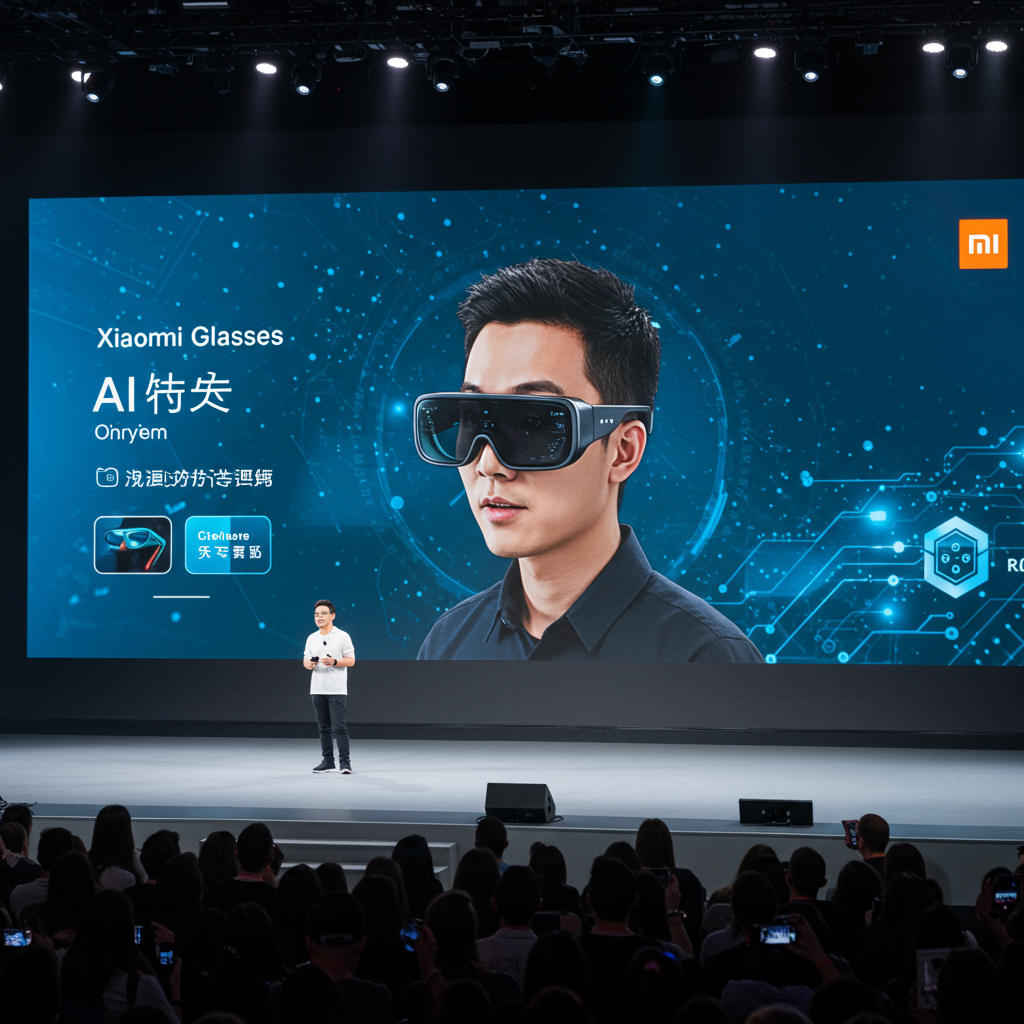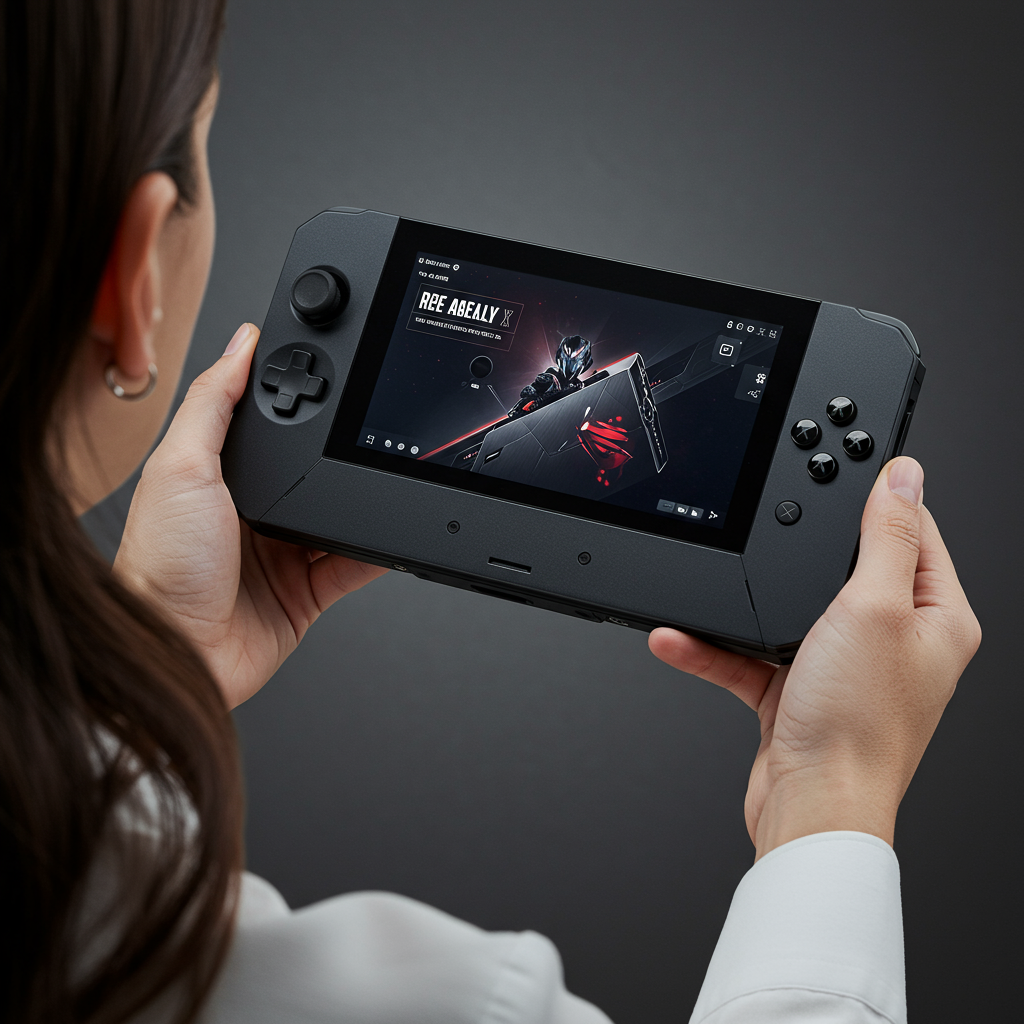Xiaomi has just unveiled its latest foray into the burgeoning world of wearable technology with the launch of new AI-powered smart glasses. Introduced at the company’s “Human x Car x Home” event in Beijing, these innovative glasses are poised to challenge existing market leaders, most notably Meta’s collaboration with Ray-Ban. The event also showcased a range of other new products, including a foldable smartphone, a smartwatch, and various smart home devices, underscoring Xiaomi’s expanding integrated ecosystem strategy.
Disrupting the Smart Glasses Market
The new Xiaomi AI Glasses arrive at a pivotal moment. The global smart glasses market is experiencing rapid growth, projected to jump significantly in the coming years. Xiaomi’s entry is strategically timed to capitalize on this expansion, positioning its offering as a feature-rich yet accessible alternative to current market options. Analysts believe Xiaomi’s deep integration across smart homes, mobile devices, and even electric vehicles provides a unique advantage, offering potential connectivity and feature synergy rivals may lack.
Core Features and AI Capabilities
Equipped with a 12-megapixel ultra-wide camera, the Xiaomi AI Glasses enable users to capture first-person perspective photos and videos. Voice commands provide a hands-free way to trigger recording and photography. Beyond simple capture, the integrated AI engine facilitates real-time functions like object recognition and on-the-spot text translation, making them useful tools for exploring the world around you. Xiaomi’s proprietary XiaoAI assistant powers voice interactions, allowing users to ask questions and receive spoken responses directly through the glasses’ open-ear audio system. This setup uses directional speakers and multiple microphones for clear communication and media playback, even incorporating bone-conduction technology in some models for enhanced call quality and wind noise reduction.
Performance Powered by Qualcomm and Vela OS
Under the hood, the glasses utilize a Qualcomm Snapdragon AR1 Gen 1 chip, specifically designed for augmented reality and wearable tasks. This chip works in conjunction with Xiaomi’s own Vela OS to process AI workloads efficiently and provide swift responses to user commands. While internal storage details vary, some reports mention 32 GB storage capacity, alongside 4 GB of RAM.
Battery Life: A Key Differentiator
Perhaps the most attention-grabbing claim surrounding the Xiaomi AI Glasses is their battery performance. Xiaomi reports the glasses can achieve up to 8.6 hours of continuous use on a single charge. This figure is notably more than double the stated four-hour battery life of the current Ray-Ban Meta smart glasses, according to reports. Addressing battery limitations, a common challenge in wearable tech, provides Xiaomi with a significant competitive edge “on paper.” The glasses also support fast charging, reaching a full battery in just 45 minutes via a standard USB-C port, eliminating the need for a proprietary charging case for this function.
Beyond the Basics: Advanced Functionality
Adding further layers of utility, the Xiaomi glasses include features like mobile payment support, specifically mentioned for scanning Alipay QR codes directly with the camera and confirming via voice. Another innovative inclusion is the option for electrochromic lenses. Unlike standard transition lenses that change tint automatically, these allow users to manually switch between shaded and transparent modes electronically, offering greater control over visibility in varying light conditions. Xiaomi also claims support for 2K video recording (1440p at 30fps), live broadcasting, and impressively, up to 45 minutes of continuous video recording – a claim met with some skepticism by early commentators but one that would dramatically surpass competitors like Meta, which currently limit continuous recording to just three minutes.
Pricing, Availability, and Market Position
In China, the standard version of the Xiaomi AI Glasses is priced competitively at 1,999 yuan, which translates to approximately $275-$280 USD, making them comparable in cost to the Meta Ray-Ban lineup. Models with electrochromic lenses are priced slightly higher. Initial availability is limited to the Chinese market, with Xiaomi indicating that local sales performance will inform decisions about a potential international release. Meta currently holds a dominant position in the nascent smart glasses market, reportedly accounting for over 60% of sales last year. Xiaomi’s aggressive pricing and focus on enhanced features aim to capture a significant share of this expanding market. The glasses are available in several colors, including Black, Brown, and Green, and weigh less than 40 grams, making them lightweight and comfortable for extended wear.
The Broader Context: Competition and Challenges
Xiaomi’s entry intensifies competition in the smart eyewear space. Other Chinese tech giants are also developing similar products; Huawei recently launched AI glasses without a camera, while Baidu plans camera-equipped glasses powered by its Ernie AI. While the market is ripe for growth, challenges remain. Consumer adoption rates beyond tech enthusiasts, navigating complex global privacy regulations surrounding wearable cameras and data collection, and refining the technology for seamless user experience are all hurdles. Features like pervasive recording also raise critical social and ethical questions about privacy in public spaces. Despite these, Xiaomi’s strategic ecosystem play, combined with competitive pricing and feature claims, positions them as a formidable contender in the future of smart wearables.
Frequently Asked Questions
What are the key AI features of the new Xiaomi smart glasses?
The Xiaomi AI Glasses integrate several powerful AI capabilities. These include real-time object recognition using the built-in camera, instant text translation displayed visually or delivered audibly, and the ability to scan QR codes for mobile payments. They are powered by Xiaomi’s XiaoAI assistant and a Qualcomm AR1 chip, enabling hands-free voice control for various tasks like capturing photos and videos or asking general questions.
How does the Xiaomi AI Glasses battery life compare to Ray-Ban Meta?
Xiaomi claims an impressive battery life of up to 8.6 hours of continuous use for its AI Glasses on a single charge. This is a significant competitive point, as it is reported to be more than double the approximately four-hour battery life offered by Meta’s Ray-Ban smart glasses. The Xiaomi glasses also feature fast charging, reaching a full charge in about 45 minutes.
What is the price of the Xiaomi AI Glasses and where are they available?
The standard version of the Xiaomi AI Glasses is priced at 1,999 yuan in China, which is equivalent to approximately $275 to $280 USD, making them comparably priced to Meta’s offering. Models with electrochromic lenses are priced slightly higher. Currently, the glasses are only available for purchase in the Chinese market. Xiaomi has not yet announced specific plans or timelines for an international release.
Xiaomi’s launch marks a bold move into the smart eyewear market, directly challenging existing players with competitive pricing and potentially superior specifications, particularly concerning battery life and unique features like manual electrochromic lenses and mobile payment integration. While initial availability is limited, the introduction of these AI-powered glasses underscores Xiaomi’s ambition to integrate advanced technology across its extensive product ecosystem and capture a significant share of the rapidly growing wearable tech segment. The coming months will reveal how these glasses perform in the market and whether their ambitious claims translate into real-world performance that could truly disrupt the smart glasses landscape.
Word Count Check: 904
References
- petapixel.com
- opentools.ai
- www.techtimes.com
- gizmodo.com
- <a href="https://www.gsmarena.com/xiaomiaiglassesdebutwith2krecordingandover8hoursofbatterylifeopenwearstereopro_offer-news-68416.php”>www.gsmarena.com




